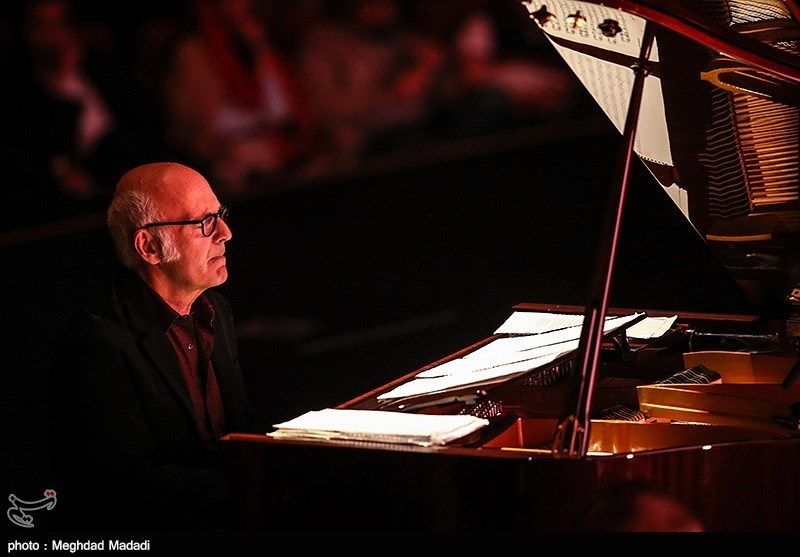The Illustrated Afternoon: The creative process of Ludovico Einaudi’s Seven Days Walking
You may have not heard of Ludovico Einaudi, but you have probably heard his music – even if you don’t realise it. The Italian composer’s piano music is often played in emotional scenes on film or television. The composer, as the world’s most-streamed classical artist of all time, is currently on his Seven Days Walking tour. For the first time, however, he is giving a talk on the creative process behind his music. The event, The Illustrated Afternoon, was held at the Barbican Centre and was organised to raise money for Serious, a musical charity that Einaudi supports.
The afternoon began with gentle piano playing in the background, with a screen showing a video of snowy walking routes. Einaudi walks slowly across the stage and explains how his walking served as an illustration of his creative process for composing his new music. He describes how, in the winter of 2018, he walked the same route in the Alps and experienced it differently every time. It was this process that inspired his music. The composer explained the difficulty of picking the tracks, mulling over hours of ideas and variations – none better or worse than each other, just different.
As a result, he produced seven albums with a different variation of each day, releasing them across seven months – titled Seven Days Walking Day 1, Seven Days Walking Day 2 etc. Einaudi himself emphasised exactly how “very special” and unusual it was that he was talking to an audience about his music. Having been to a concert of his before, I can confirm that his usual performances are entirely wordless. No hello, no goodbye, but always ended with a bow – hand over his heart in thanks. A reminder that this man’s performance is his music, not himself.
His walking served as an illustration of his creative process
Then Einaudi shared a tape machine recording of some of his initial ideas. Turning back to the piano, undoubtedly his comfort zone, he played over the top of it. The music itself had a feeling of wandering to it but still maintained a strong sense of structure. The effect appeared to be achieved largely by the presence of strong repetition. He played another excerpt he recorded on his phone – a different variation of the same piece. Einaudi compared its relationship to the previous piece of music as going on the same walk, but the earth is different. There may be a stone in a different place but the walk is still the same.
It felt odd to listen to the famous composer’s music on such a low-quality recording. But something was humbling about hearing his music in this way: unfinished and incomplete. As an aspiring composer who also uses their phone to record initial ideas, it was inspiring to see. Not only did a globally renowned composer share in this process of undeveloped ideas, but he was also willing to share it with an audience.
Einaudi then invited Frederico Mecozzi (on violin) and Redi Hasa (on cello) onto the stage to play with him. These musicians worked with him on the album and also accompanied him on some of his walks. They spoke about how they enjoyed their time together and becoming “a second family”. He joked that he chose to work with them because he “didn’t want to feel lonely”. This gained a chuckle from the audience. They prepared to play the first full piece of the afternoon and the audience visibly became still in anticipation.
He ended the performance as he always does: bowing, one hand on his heart
The plaintive violin and cello were soft in sound, weaving in and out of the piano melody. The minimalist style was calming and relaxing. Given the audience’s apparent entranced state, the only discernable improvement was that it could have lasted longer. They then played another piece – ‘The Path of the Fossils, Day 1′. It started quietly and gently. It picked up momentum and soon developed into a contrastingly big and bold performance. The piece ended suddenly, a sharp and loud final note. Einaudi and his musicians stood and bowed – it was the end. Within seconds, the majority of the audience gave him a standing ovation. They exited swiftly, but the audience continued their praises in surges of enthusiastic clapping and cheering for minutes.
It was clear to tell which members of the audience have never been to one of Einaudi’s concerts before, as they readied themselves to leave. They didn’t know that Einaudi, given enough applause, would reappear (in an almost Marvel-esque end-of-credits fashion) to perform one last piece. Those who were wise to this were still giving their applause – a loud and clear plea. Soon enough, Einaudi emerged onto the stage.
In response to the audience, he played ‘Berlin Song’. This was clearly a well-known and well-loved piece amongst his fans. It was met with final applause even more ferocious and enthusiastic than the last. Most – if not, all – were stood in appreciation. Despite the afternoon being a one of a kind, he ended the performance as he always does: bowing, one hand on his heart in thanks to the audience.

Comments